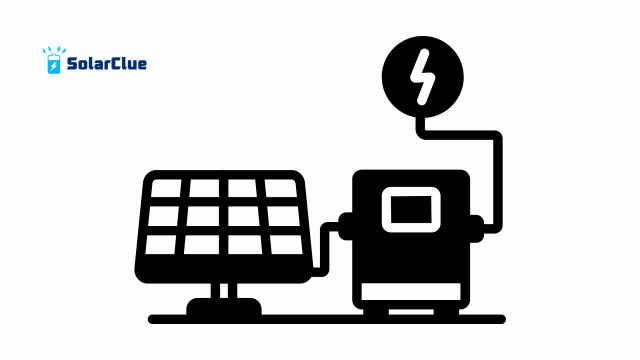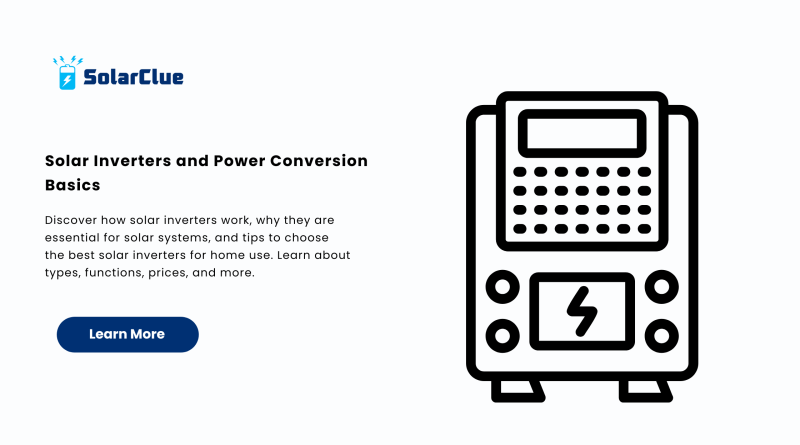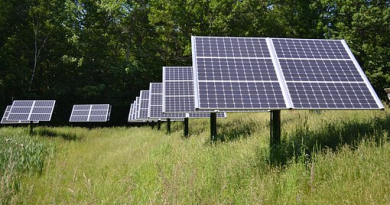Solar Inverters and Power Conversion Basics
As solar energy becomes a preferred power source for homes and businesses, understanding the basics of solar inverters and power conversion is more important than ever. The solar inverter is the brain of your solar system—without it, your solar panels are practically useless for your everyday power needs. This guide will walk you through how solar inverters work, different types available, the best solar inverters for home applications, and how to choose the right one for your needs.
Table of Contents
- 1 What Is a Solar Inverter?
- 2 Why Solar Inverters Matter in Power Conversion
- 3 Types of Solar Inverters
- 4 How to Choose the Best Solar Inverters for Home
- 5 Top Brands Offering the Best Solar Inverters in India
- 6 Solar Inverter Price in India
- 7 Installation and Maintenance Tips
- 8 Future of Solar Inverters and Smart Energy Systems
- 9 FAQs
- 10 Conclusion
What Is a Solar Inverter?
A solar inverter is an essential component of a solar power system. It converts the direct current (DC) electricity generated by solar panels into alternating current (AC) electricity that powers most home appliances and electronics. Without a solar inverter, the energy captured by your solar panels cannot be used efficiently.
Why Solar Inverters Matter in Power Conversion
Most appliances in homes and offices run on AC power, while solar panels generate DC power. That’s where the power conversion comes in. A solar inverter handles this conversion process, ensuring a seamless flow of energy to power lights, refrigerators, fans, and other devices.
A reliable inverter also manages system performance, monitors energy production, and provides safety functions like automatic shutdown during grid failures.
Types of Solar Inverters
Choosing the best solar inverter depends on your specific energy needs, location, and budget. Here are the major types:
1. String Inverters
These are the most common and affordable option for residential installations. All panels are connected in series, and one central inverter converts the power.
Pros:
-
Low cost
-
Simple design
Cons:
-
Reduced efficiency if one panel is shaded
2. Microinverters
Microinverters are attached to individual solar panels. Each panel operates independently, improving efficiency, especially in shaded or partially shaded areas.
Pros:
-
High performance in variable sunlight
-
Individual panel monitoring
Cons:
-
Higher cost
3. Hybrid Inverters
These inverters are compatible with both solar panels and batteries. They convert DC to AC and also manage battery charging.
Pros:
-
Ideal for solar + storage systems
-
Grid-independent power backup
Cons:
-
More complex and expensive
4. Power Optimizer Systems
A mix between string inverters and microinverters. Power optimizers are installed at the panel level, while the conversion is done at a central inverter.
Pros:
-
Greater control and monitoring
-
Better efficiency than traditional string inverters
Cons:
-
Slightly higher cost than string inverters
How to Choose the Best Solar Inverters for Home
When selecting solar inverters for home, consider these factors:
1. Efficiency
Look for inverters with at least 95% efficiency. Higher efficiency means more electricity for your home.
2. Warranty
A longer warranty period (typically 5–12 years) ensures you’re protected against failures and defects.
3. Compatibility
Ensure the inverter is compatible with your solar panel setup and battery (if using a hybrid system).
4. Monitoring Features
Smart inverters offer real-time monitoring via mobile apps, allowing you to track energy generation and system health.
5. Price
Solar inverter price in India can range from ₹6,000 for small string inverters to ₹1,00,000+ for hybrid inverters. Your choice depends on system size, brand, features, and warranty.
Top Brands Offering the Best Solar Inverters in India
Some of the best solar inverters available in the Indian market include:
-
SMA Solar – Known for efficiency and durability
-
Fronius – Reliable and feature-rich
-
Growatt – Budget-friendly with high performance
-
Luminous – Widely available for residential use
-
Microtek – Suitable for small to medium installations
-
Delta – Strong presence in commercial installations
Solar Inverter Price in India
Here’s a basic pricing overview for common types of solar inverters:
| Type of Inverter | Power Capacity | Price Range (INR) |
|---|---|---|
| String Inverter | 1–5 kW | ₹6,000–₹30,000 |
| Microinverter | Per panel | ₹7,000–₹12,000 (each) |
| Hybrid Inverter | 3–10 kW | ₹25,000–₹1,00,000+ |
| Power Optimizer System | Varies | ₹10,000–₹50,000 |
Prices vary depending on brand, warranty, and technology used.
Installation and Maintenance Tips
-
Professional Installation: Always choose certified installers to ensure proper setup and safety.
-
Cooling and Ventilation: Inverters can heat up, so install them in a well-ventilated, shaded area.
-
Regular Maintenance: Clean vents, check error logs, and ensure proper firmware updates to prolong life and maintain efficiency.
-
Surge Protection: Use surge protectors to guard against voltage fluctuations or lightning damage.
Future of Solar Inverters and Smart Energy Systems

With rising energy demand and smart home technology, solar inverters are evolving into smarter devices. The future lies in:
-
AI-integrated solar inverters
-
Inverters with real-time load balancing
-
Better compatibility with battery storage and EV charging
-
Enhanced IoT monitoring and predictive diagnostics
These advancements will make solar inverters for home systems more reliable, efficient, and user-friendly.
FAQs
Q1: What is the role of a solar inverter in a solar system?
A solar inverter converts the DC electricity produced by solar panels into AC electricity used by household appliances.
Q2: Which is the best solar inverter for home use?
Microinverters and hybrid inverters are great for home use, especially if you’re looking for maximum efficiency and battery compatibility.
Q3: What is the average price of a solar inverter in India?
The solar inverter price ranges from ₹6,000 for small units to over ₹1,00,000 for hybrid models, depending on brand and capacity.
Q4: Can I use any inverter with my solar panel system?
No. Always ensure compatibility between your solar panel capacity and inverter rating. Mismatched systems can lead to inefficiencies or equipment damage.
Q5: How long do solar inverters last?
Most solar inverters last between 10 to 15 years, depending on usage, environment, and maintenance.
Conclusion
Solar inverters and power conversion form the backbone of your solar energy system. They are crucial not only for converting solar energy into usable electricity but also for ensuring the system runs safely and efficiently. Whether you’re a homeowner looking for reliable energy or a business going green, understanding solar inverters is key to making the right choice. If you’re planning to invest in solar and need personalized assistance, explore premium inverter options and expert advice only at SolarClue.com and for deeper insights, visit our blog at blog.solarclue.com—we’re here to light up your solar journey.


